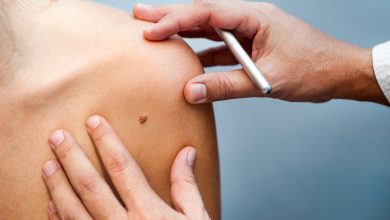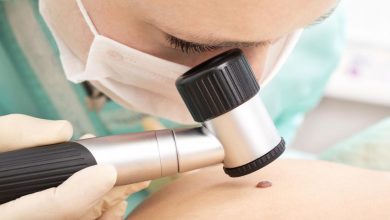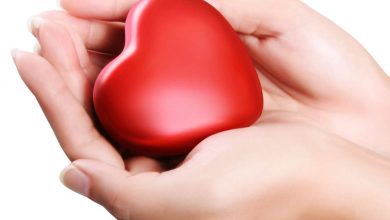Health
What Are Herbal Remedies For Anxiety And Depression?
The number of cases of depression and anxiety has been growing in the United States. Traditional western medicine offers relief through antidepressants. However, many people do not want to take antidepressants because of the side affects and the long term dependence. This is why herbal remedies have become more popular for anxiety and depression treatment. Herbal remedies have been researched and have proven to help people with depression and anxiety. If you are searching for a herbal remedy, there are many out there worth trying. Below are the top herbal remedies for depression and anxiety.
1.St. John’s Wort
Purpose: St. John’s Wort has an anti-anxiety impact that works well for mild to moderate depression.
Dosage: It’s ideal to begin at 250 mg for a couple of days and then increase to 450 mg. It takes 4 months to feel the full impact of St. John’s Wort.
Warning: Its important to avoid intermixing with other supplements and drugs. St. John’s Wort reduces the effectiveness of birth control tablets and blood thinners. If you’re taking other prescription medication, let your physician know so he/she can make sure there are no side effects.
2. SAM-e
Purpose: S-adenosylmethionine (SAM-e) is a natural dietary supplement that was researched as a natural remedy for depression. This supplement is intended to behave like the human body’s organic chemicals.
Dosage: The dosing suggested for SAM- e varies from 800 mg-1600 mg of SAM-e daily for 4-12 weeks.
Warning: High doses of oral SAM-e can cause diarrhea, upset stomach, dry mouth, headache, and dizziness. Some people may also be allergic to SAM-e.
3. Lavender oil
Purpose: Lavender oil is an essential oil that is used to treat mild to moderate depression. It carries therapeutic benefits for depression and anxiety.
Dosage: The dosing suggested for lavender oil is 80-160 mg of a specific variation can be taken daily for 6-10 weeks. In addition, 500 mg of dried, powdered lavender flowers can be taken twice daily for 8 weeks.
Warning: When taken orally it may cause headache, increased appetite and constipation.
4. Eucalyptus
Purpose: Eucalyptus oil (aka Lavela) is used as an inhalant–in sachets, oils, sprays, and creams. The smell causes sleep and the feeling of calmness. Eucalyptus oil is available in oral form.
Dosage: None Specified
Warning: Make sure to dilute eucalyptus oil before putting it on your skin, otherwise it can cause problems with the nervous system. In addition, you should dilute it when taking it orally. Consuming 3.5 mL of undiluted oil can be fatal.
5. Valerian root
Purpose: Valerian root functions as a mild sedative and anxiolytic. The infusion phytofin Valerian 368 was revealed to have sleep-enhancing qualities. Based on studies, valerian root is the best herb for sleep. It is also an excellent anti-anxiety herb.
Dosage: Valerian can be taken throughout the day in tiny doses 20 mg or less. It’s widely accessible in “sleep teas” in a dose of approximately 20 mg.
Warning: Valarian root will make you drowsy! Also, be sure to not combine Valerian with other drugs or vitamins.
6. Kava
Purpose: Kava root non-addictive and is proven to work in generalized anxiety disorder. Kava helps with relaxing and reducing anxiety.
Dosage: Kava has been proven in a number of studies to have a result very similar to that of Valium in treating anxiety. Taking 300mg helps decline anxiety, while enhancing functionality in individuals.
Warning: Kava should only be taken for 4 months at a time. It should also not be taken by individuals with hepatitis or liver issues. Research has shown that liver toxicity can be brought on by kava.
7. Rhodiola
Purpose: Rhodiola (Rhodiola Rosea) is commonly found in traditional medicine in Russia as a tonic and cure for exhaustion, poor attention span, and diminished memory.
Dosage: Initially, rhodiola can be taken at 100 mg once per day. If necessary, the dose can be increased up to 400 milligrams each day.
Warning: The most common effects were dry mouth and dizziness.
8. Ashwagandha
Purpose: Ashwagandha has been effective in assisting people with bipolar disease. It helps by enhancing auditory-verbal working memory, a measure of response time, and a measure of social cognition. Other studies have proven that Ashwagandha is successful in treating anxiety, enhancing moods, and also in obsessive-compulsive disorder.
Dosage: Ashwagandha can be taken in just one 300 mg capsule of extract from the Ashwagandha plant’s origin.
Warning: The long-term safety of ashwagandha is not known. Taking large dosses of ashwaganda can lead to an upset stomach, vomiting and diarrhea.
9. Chamomile
Purpose: Chamomile helps with treating generalized anxiety disorder. There are two types of chamomile used medically. They are German or wild lavender (Matricaria recutita) and British or Roman chamomile (Chamaemelum nobile).
Dosage: When taken in oral pill form, 1.1g/day – 15g/day is recommended.
Warning: There are no known adverse side effects and it is not addictive
10. Ginko Biloba
Purpose: Ginkgo extract is used for healing a number of health issues such as memory loss, concentration issues , mental confusion, depression, anxiety, nausea, tinnitus, and headache. Ginkgo is thought to function by increasing blood flow, decreasing blood viscosity, boosting neurotransmitters, and lowering dangerous free radicals.
Dosage: A normal ginkgo dose is 40 mg three times per day for a total of 120 mg. It’s generally advised to begin at a very low dose. It is also advised to take it with foods to prevent gastrointestinal distress.
Warning: Ginko Biloba can cause side effects like stomach upset, dizziness, constipation, abnormal heartbeat, skin reactions and headache.
As you can see there are many herbal remedies available for depression treatments. Make sure to fully research them before starting on any treatment. Also, make sure to discuss it with your physician before you begin.




